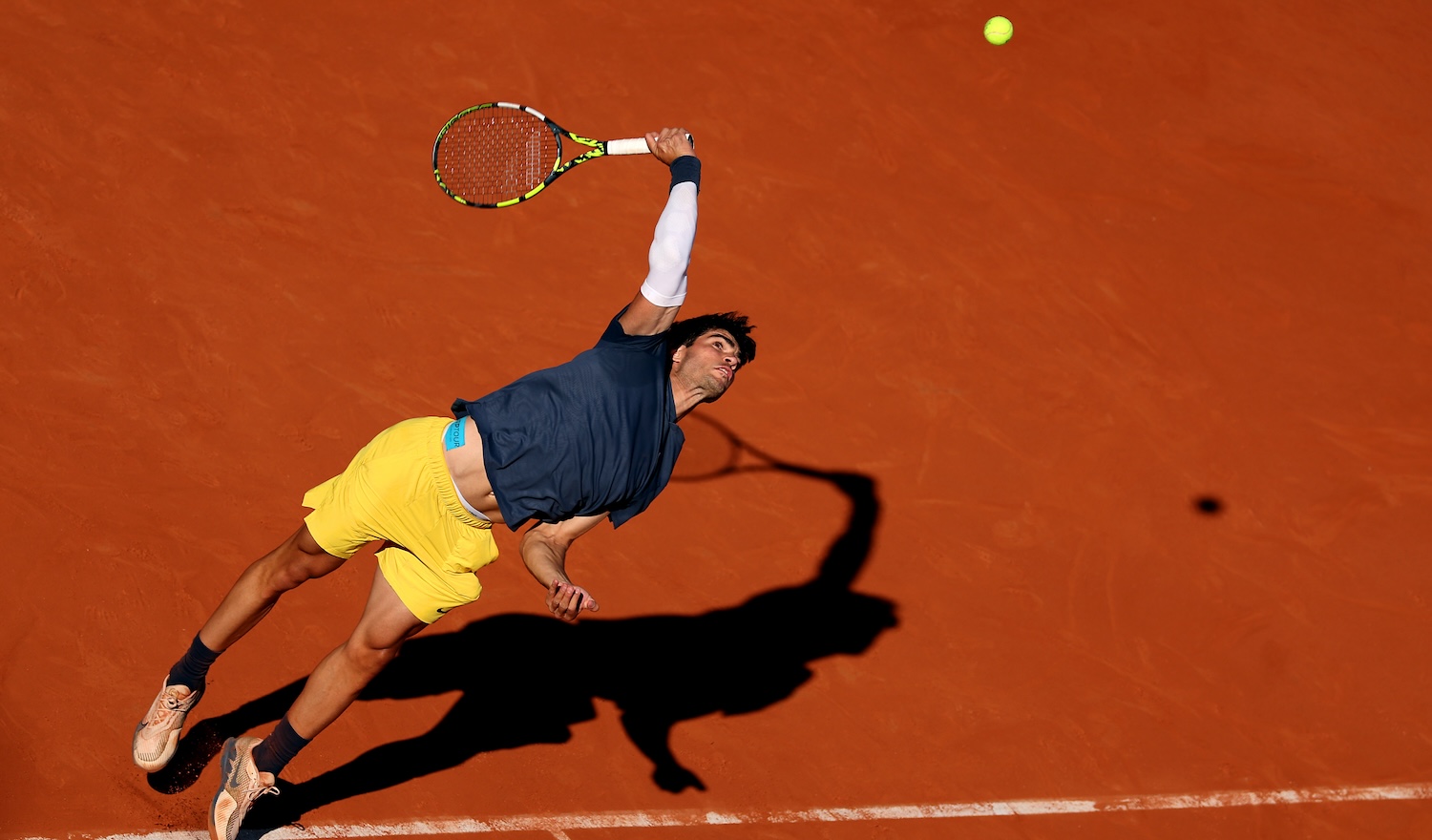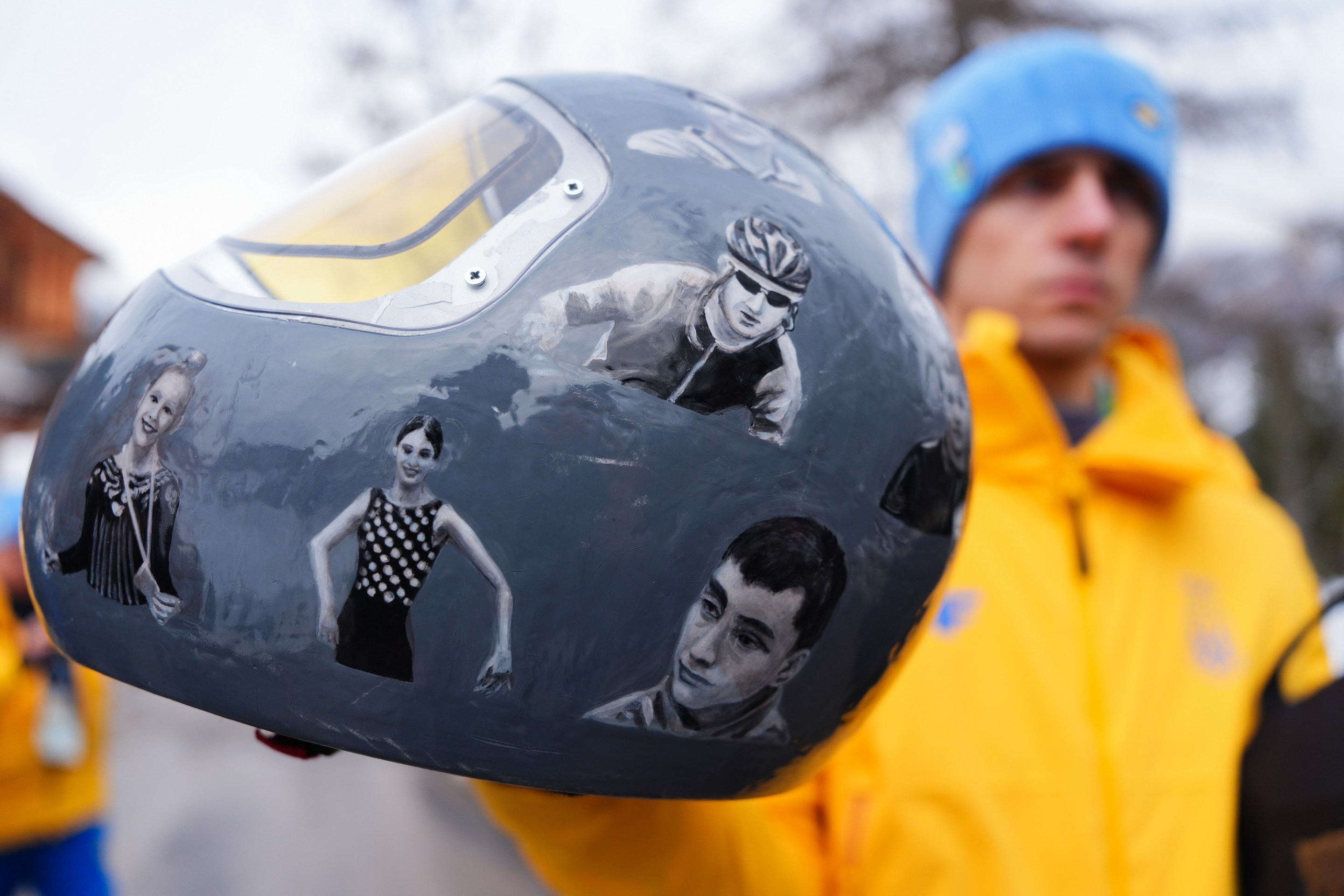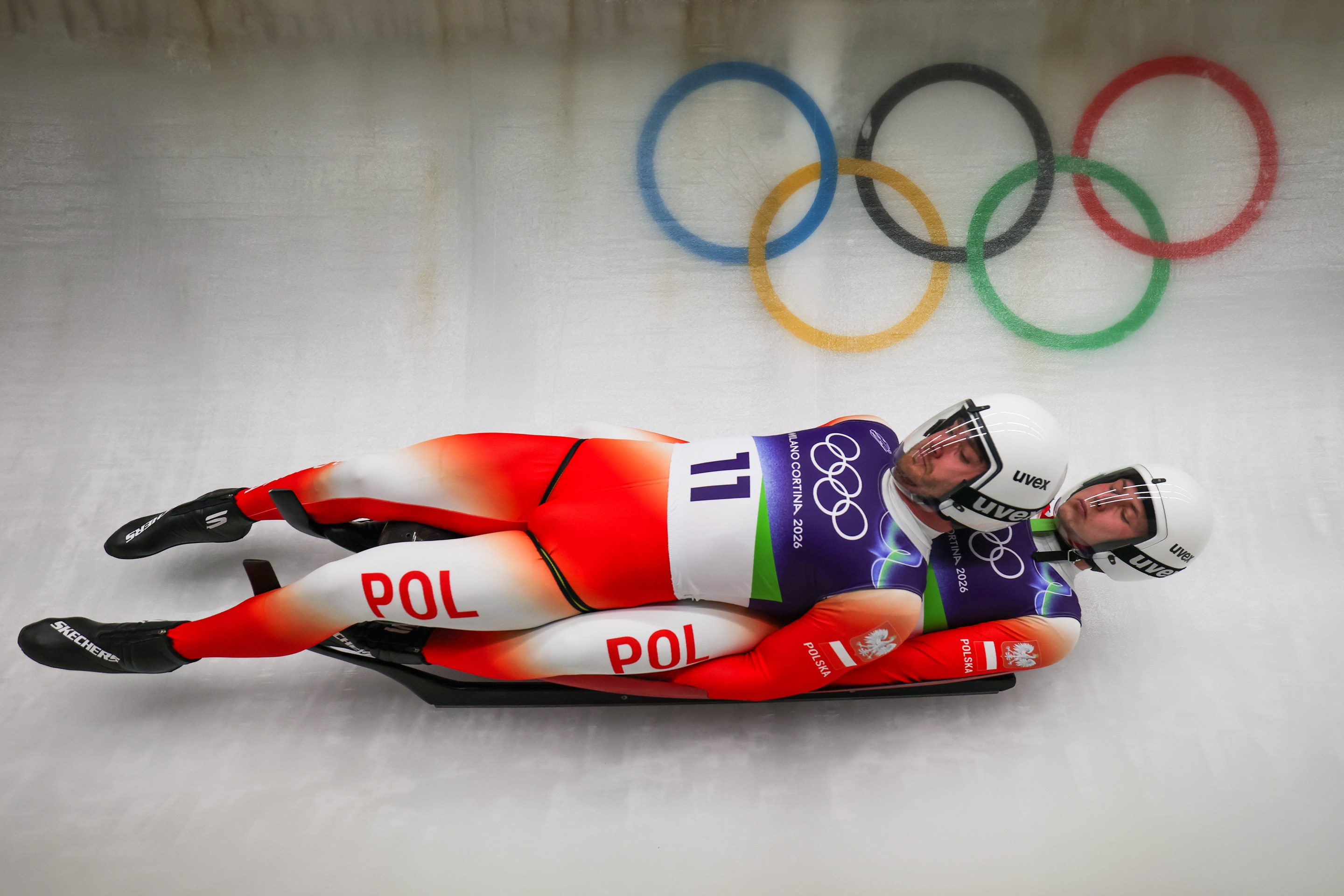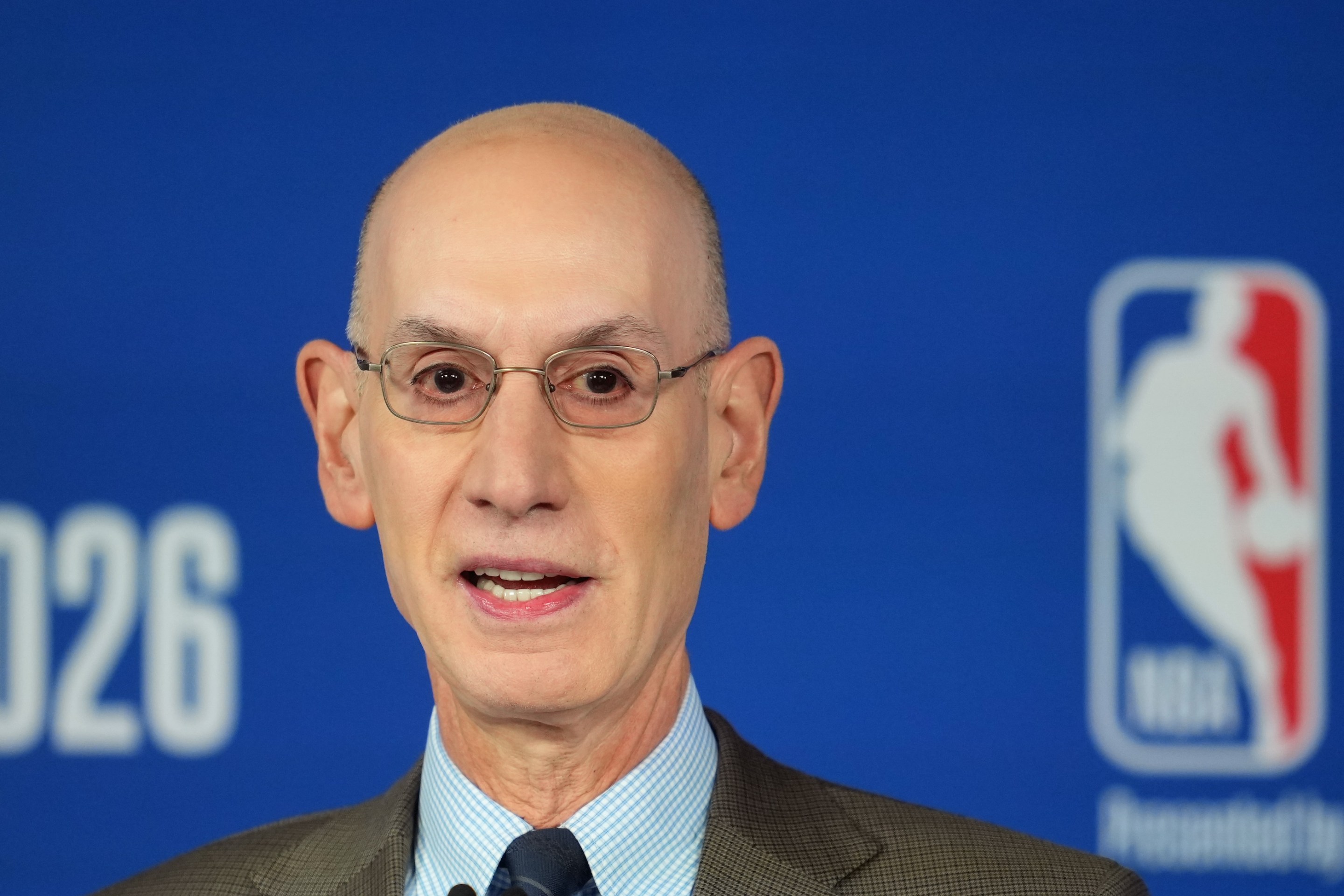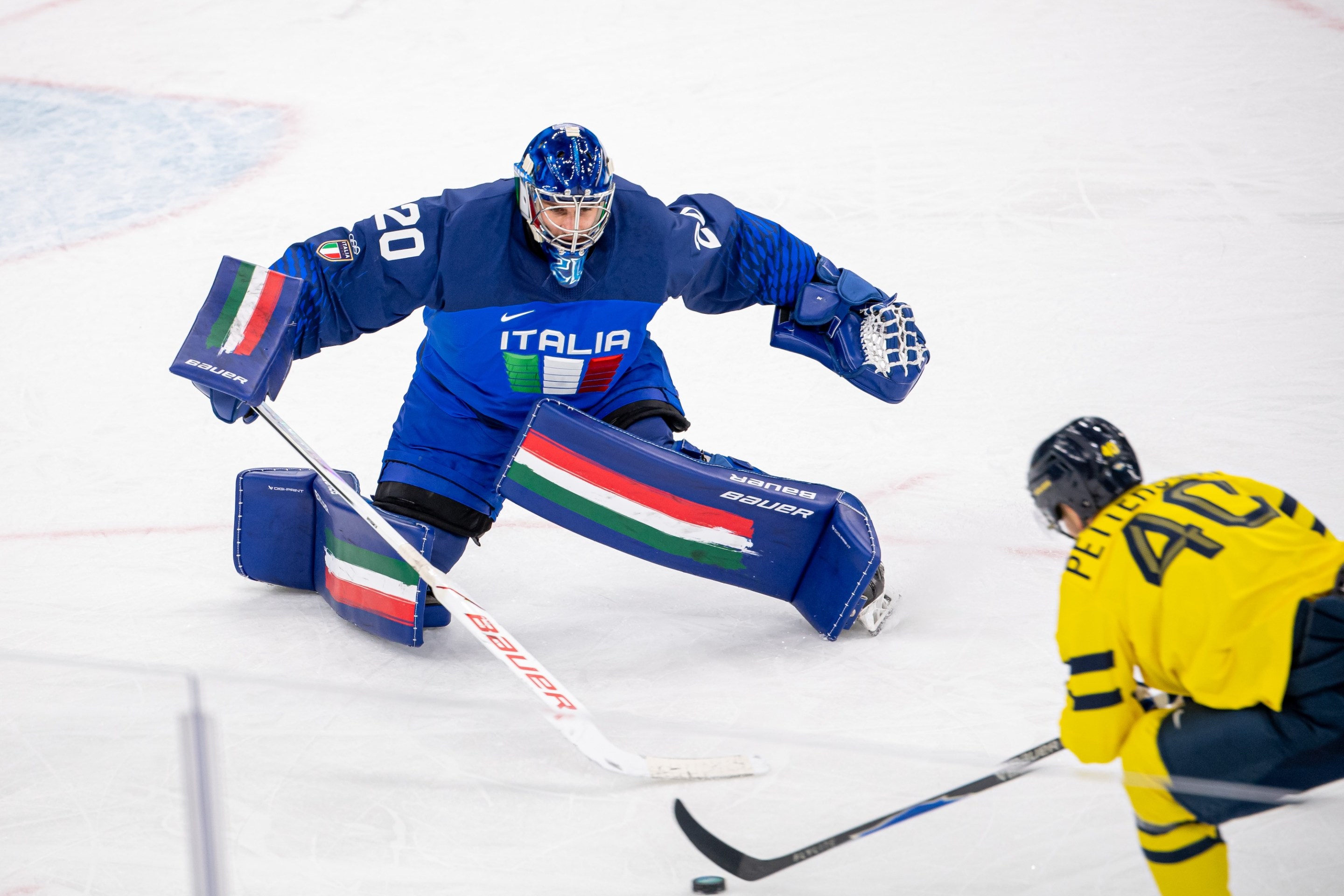Carlos Alcaraz outlasted Jannik Sinner to reach the French Open final with a five-set, 2-6, 6-3, 3-6, 6-4, 6-3 win that took just over four hours. Minutes after the match ended, Giri, Owen, and Patrick held a summit to discuss the ninth installment of the rivalry and take stock of where the two players are in their seasons and careers.
Patrick Redford: As an author-to-be on this very rivalry, we have to start with you, Giri. What I’m curious about is where you’d frame this five-setter within the nine-match Sinneraz canon purely in terms of the quality (or in this case, I suspect, the lack thereof) of the match?
Giri Nathan: Through the first three sets and change, it was the first known evidence that Jannik Sinner and Carlos Alcaraz could play a boring tennis match against each other. Pretty much every meeting between these two, dating back to their adorable matchup on the Challenger circuit back in 2019, has contained some passages of outright brilliance, but this one was devoid of gems for the first few hours. They’d both spent the last four matches chopping up the opposition, so as I watched them cramp and toil, it was a reminder that they’d actually both come into the tournament recovering from injury and managing muted expectations. With Novak Djokovic withdrawn from the tournament with a meniscus tear, they are pretty much the only opponents who could expose the limitations of the other’s game or conditioning. Both had lost only one set heading into this semifinal, and suddenly both were looking intensely disgruntled and taking turns falling out of rhythm. As friend of the program Craig Shapiro put it to me in a text, “These guys love to make each other suffer.”
Owen Lewis: The violent step up in competition that this match posed for both Alcaraz and Sinner is a really good point, Giri. Great rivals may lift each other up, but they also know how to make each other look bad, and that unfortunate latter dynamic dominated the majority of this match, even if the scintillating last hour made me momentarily forget that. I didn’t know what the hell Alcaraz was doing for the first hour. Sinner seemed to have a huge physical dip in the second hour. The third set was more competitive but still featured far too many Alcaraz forehands that missed by miles—that shot is one of the more transcendent forehands I’ve seen in tennis, but huge swaths of this match almost had me questioning that. Still, I’m incredibly grateful that both guys, Alcaraz especially, elevated in the last set and change and reminded us of the heights this rivalry can touch at its best.
PR: It felt like every game, especially on Alcaraz’s serve, in the fifth set wound up at 30-30, mostly because both of these dudes are such gifted defenders. Sinner seemed a bit more ready for the drop shots, though his first serve was so wobbly that he also had to give the impetus over to Alcaraz for concerningly long chunks of time. Ultimately, the Carlos serve was so pure in the business end of the final set, and when he hit that ace and delivered that second serve out wide it reminded me of the 2022 U.S Open quarterfinal, which he won on what felt like the only ace of the match. There’s something about Alcaraz as a competitor that I find totally magnetic; cranking up the serve like that in the highest-pressure moments is something to behold, and when he talked about enjoying the suffering in his post-match interview, I just thought, “Yeah, no shit.” That’s what pushed him to really get going.
GN: I am pretty intent on viewing these guys on their own terms, but the many people who want to see a baby Rafa in Alcaraz must have been delighted by that quote, which is right in the Nadal wheelhouse, give or take a rhetorical “No?” To Owen’s point, I can’t remember the last time Alcaraz’s forehand looked that off-kilter for that long a stretch, and I’m not sure all of it could be attributed to the impressive depth that Sinner was producing from the baseline early in the match (and that eventually faded out, in lockstep with Sinner’s scoreboard edge). I think these guys were straight-up nervous against each other. Throughout this tournament, they’ve only looked young when they’re playing each other! Both players were locking up in the third set, and Alcaraz said on-court afterwards that he drew on his experience of mondo full-body cramps in last year’s semifinal against Djokovic and realized he needed to stay calm and let those cramps subside.
OL: I hate to bring pain to Sinner’s lookalike/clone here, but a question running through my head in the aftermath is whether Sinner blew that match. Like the epic U.S. Open quarterfinal you mentioned, Patrick, Sinner had another two-sets-to-one lead that he failed to convert, even if he didn’t have a match point this time. Though he was never closer than two games from the win, I wonder if failing to put away an Alcaraz who was so off-kilter for so much of this match will sting a little more. Carlos finished the match in insane style, but I don’t think his average level throughout all five sets was necessarily indicative of a win over the ATP’s best player so far this year. What do you guys think?
PR: I think we have to frame these performances in the context of both fellers’ injuries, especially given the cramping issues each of them had. Something I wonder about is Sinner’s physicality in these long-ass matches, especially since each of the few losses he’s had this year has been defined in part by him suffering some malady—cramps against Tsitsipas in Monte Carlo, the dive in Indian Wells that clearly brought his level down. Something that makes this rivalry so great is that Alcaraz is going to retrieve an extra 30 or so balls over the course of a five-set match that nobody else would, and that forces Sinner to dig deeper. Ideally that leads to even cooler, more audacious shotmaking, and while he flashed some highlight-reel stuff late, he was clearly suffering more acutely. Alcaraz, for his part, survived better, if that’s an acceptable phrase. This felt like watching cycling.
GN: I agree, if you were just to show me Alcaraz’s half of the court over the duration of the match, I would not have assumed that there was enough technical execution to beat a 2024 Sinner. I expected to see Carlitos carrying over some of his lessons from his Indian Wells win on those gritty hard courts—slower, loopier tactics that could apply just as well to clay—but instead I largely saw him pulling the trigger on high degree-of-difficulty shots while terribly out of position. That looked ugly for the first three sets, and then, suddenly, his execution rose to match his vision. Then he was making the screaming passing shots on the run, hitting his dropshot-lob combos, going big on the wide serves in the deuce court, letting the usual Carlitos magic carry him over the finish line. It came out of nowhere. One loose overhead from Sinner at 4-5, 30-15 in the fourth set and the whole complexion of the match changed.
OL: It really was a sudden turnaround, and I think what sparked it was that Alcaraz started having fun again. After a miserable three hours, Alcaraz landed a few improbable passing shots and was reminded that he is a tennis demigod bestowed with unique athletic blessings. He started grinning, the crowd started roaring, and he loosened up. I can’t be sure that his personal joy at his marvelous angled winners was the reason why he went into god mode, but I also can’t think of a better explanation.
Alcaraz is a mystifying player in some ways; he’ll blow a series of routine shots only to play with alarming coherence when his back is against the wall. He’s the anti-Roger Federer—Fed’s low-margin aggression was fantastic in all the medium-big moments, but when it came to fifth sets against his biggest rivals, it abandoned him more often than not. Like you alluded to, Giri, Alcaraz’s forced error count in this match was mountainous—he seemed allergic to floating a ball back to stay in a point, he had to go for the highlight-reel winner whenever he got dragged a hair out of position. Those extended grunts don’t quite hit the same when the forehand misses by five feet. But then in the fifth set, Alcaraz started playing incredible defense, soaking up the pressure entirely before springing into his counterattack. His backhand down the line, which was completely MIA for 3.9 sets, was suddenly perfect. I’m still trying to wrap my head around the unevenness of the performance and how he made it work.
GN: It’s one of the funny things about a job where you are trying to impose a legible narrative structure on what is essentially two crazy-ass youths trying to kill each other for four hours; they're experiencing all kinds of emotional and physical ups and downs, and we have no access to their internal monologues. Sometimes the tennis will just play out in a way that resists easy comprehension, and it will be very difficult to trace the scoreboard result back to its root causes. Deep in the fourth set I swore Sinner had found more reliable, repeatable patterns of play and was going to take it in a tiebreak; he played a few loose points, Carlitos hit some classics, and suddenly all the momentum was flowing the other way.
PR: Owen, your point about Carlos having fun and flowing is a critical one. Opting for the safer play is maybe a better tactic in the moment, but he seems to be at his best when he’s leading the dance; there was a moment in the fifth set when Sinner grabbed the initiative, had a reasonably open lane for a BHDTL, and instead he played it right back at Alcaraz, who immediately walloped it…down the line.
I promise I am not simply doing Spanish essentialism here, but there is so much about Alcaraz’s game that seems so purpose-built to destroy on clay. And somehow, he’s made and won finals on the two other surfaces before he got to the final here at Roland Garros, which I suppose is a Novak Djokovic difference more than anything else. Carlos winning the first Grand Slam match with Sinner since the Italian won in Australia feels like an important step forward in their rivalry, as does winning a match like this, one that took grit and endurance more than anything else. Sinner is about to be world No. 1 and hopefully that means Vandiamos meetings in the short- and medium-term futures will be in finals. If Alcaraz wins on Sunday, each of these two guys will have a Masters 1000 title and a Slam this season, and though Sinner was profoundly unkillable for a long stretch at the start of this year, he also hasn’t beaten Alcaraz this year. We opened this chat with a question of style, now I want to know about narrative. Would Alcaraz winning his third Slam here in Paris make him the men’s player of the season? Does he even need to win to achieve that (nebulous, vibes-based) honor?
OL: This is a great question. I’ll admit here that I was shamelessly rooting for Alcaraz today, and one of the reasons why is that Sinner’s rise to the top since the end of 2023 has felt a bit unopposed. He beat Djokovic—at the Australian Open—easily. He’s gone from an 0-6 record against Daniil Medvedev to beating him five straight times with increasing ease. Alcaraz’s win over Sinner at Indian Wells reinvigorated the picture at the top of men’s tennis for me; this match does the same.
That said, and despite Alcaraz’s 2-0 record against our redheaded king in 2024, Sinner is still the player of the season. He’s 33-3 so far this year to Alcaraz’s 24-4, and unless Carlos beats Ruud or Zverev in a match so good everyone loses their minds, I think you still have to favor Sinner’s steadily high level. He’s just been much more consistent this season than Alcaraz—his loss to Carlos here is far more explicable than Alcaraz’s no-show against Zverev at the Australian Open.
What I will say is that Alcaraz winning Roland-Garros would elevate his already-lofty position in the young tennis player pantheon to levels dangerously close to that of Rafa Nadal. At the age of 21, potentially already having a major title on every surface is alien shit. Nadal was 22 by the time he won the Australian Open in 2009, completing his surface trio, and 24 when he completed the Career Grand Slam. If Alcaraz beat those marks, it might be something to validate everyone projecting him as a future GOAT candidate.
GN: Yes, I think Sinner’s still had the better season even if Alcaraz goes on to win the title, but the gap is narrow and could close completely during the brief grass season—where, let’s remember, Alcaraz went a perfect 12-0 last season after having apparently downloaded the “Grass Tennis” patch in the time between losing his shit in Roland-Garros and rocking up to Queen’s Club a few weeks later. He learns so quickly and voraciously that Sinner will have to keep adding new weapons to maintain an edge this season. And to Sinner’s credit, he absolutely has done that over the last few months. He is now an elite server (which was not yet true this time last year), and we just saw him deploy the drop shot to incredibly consistent effect against the most explosive mover on tour. Sinner will still maintain his fundamental identity as a supremely smooth-moving baseline god but I’m curious to see what else he can add to the quiver over the remainder of this season, because Alcaraz is clearly shaking off, if only by his absurd standards, a rough start to 2024. His coach Juan Carlos Ferrero said ahead of this matchup that he thought Alcaraz’s forehand was at 95 percent, not fully there yet after the forearm injury. And yet look what he can still do to the field and his chief rival. Holding a major title on every surface at 21 while not at your physical peak is terrifying stuff.
PR: Thankfully, Jannik already knows the playbook to improve: Time to make also a little bit more of gym.
Master of Comedy 😂🦊pic.twitter.com/2htdaHK1GI
— Janniksin_Updates (@JannikSinner_Up) January 17, 2024
